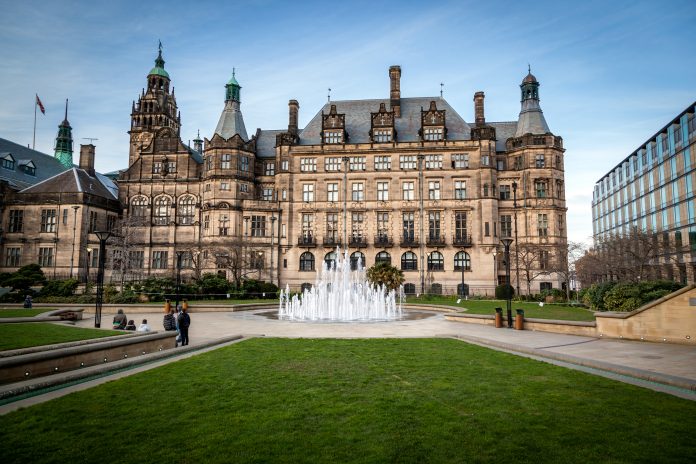Rob Arkell, Growth Director at Domain7, ponders the conversations held by local government leaders discussing the business and technology changes that will stay as a result of COVID
Over the last few months, we have been canvassing the views of local government leaders looking at the impact of COVID on their organisations and the lasting legacies that it will bring as we move forward and start to return to near normality. As a digital change agency, we at Domain7 have spent a lot of time over the years collaborating with public sector organisations including local government bodies, helping them to improve their digital systems and bringing old legacy systems up to date. Many public sector bodies have not prioritised spend on technology in the past, because other more pressing issues need to be budgeted for. That attitude seems set to change for good alongside other fundamental ways in which local government operates. Here’s what we found:
Legacy systems coped – but need updating
When the first lockdown hit, local government had to adapt quickly to a whole host of challenges including the majority of staff having to work remotely, no longer dealing with residents face to face and having to implement major new government schemes to support vulnerable people and local communities using existing – often quite old – computer systems.
There seems to have been a consensus among the government leaders we spoke to that the existing technology systems coped with the sudden onslaught of changes – but only just with one of our interviewees saying:
“The pandemic changed attitudes overnight and people set up home offices and logged into our systems from wherever they were working from. The huge increase in traffic inevitably had a knock-on effect on our technology and systems and we had to upgrade everything quickly to make sure that people could access the servers and online meeting platforms when they needed to. It was a bit of a trial by fire – in the first couple of months, there were lots of technical issues as people struggled with bandwidth, systems crashing and signals dropping out, but once we had addressed that, things started to operate more smoothly.”
The change in attitude towards investing in updating old legacy systems has clearly changed and all our interviewees said that they had plans to look at strengthening what they had and also look at ways in which their technology could work better for them.
Getting feedback from local communities has become a priority
It was clear from talking to our local government contacts that using technology to communicate more easily with residents will be key going forward. The aim for most is for a lot of activity to take place online but that some sort of facility for allowing residents to more easily interact and give feedback to their local council is important. A few are looking at bespoke platforms that will allow them to do that.
“One of the beauties of going digital is that it gives you lots of data to work with and we now need to harness that and build that back into the system. That will help us to really understand what our residents want from us. For example, there is a gap around how we hear the customer’s voice when we design systems. Historically we haven’t consulted residents about our digital systems but I feel that now needs to change. We need to start developing systems built using customer insight because it needs to work for them as well as us.”
Hybrid working will become the norm for staff
As councils start to come out of the pandemic, one of the overriding areas of consensus is about how they see their own staff working going forward. Hybrid working – with a mix of office and home/remote working seems to be the favoured position by most. A number mentioned that they would look at freeing up space in local libraries and other local council owned buildings for those who didn’t have the facilities or space to work from home but were not keen to travel too far. The aim is to cut down on desk space and the expectation that people need to be seen in the office every day. Flexibility will be key going forward allowing people to juggle personal and work commitments more easily.
“What this experience has taught us is that most of us can work from anywhere. We don’t need people …. adding needlessly to congestion in the town centre. We have seen that almost everybody can work perfectly happily from home and that has made us change our plans for the future considerably.
I believe that the future lies in hybrid working and I want to see a mixture of people working from home on day to day tasks and projects but coming in and using office space as and when they need to collaborate. Ideally, I don’t want to see people in the office more than two days a week in future. Obviously, some people don’t have a lot of space at home so may not want to do that but I envisage them working locally using desk space in libraries.”
Talking to local government leaders about lessons learned during the pandemic has been a really interesting and enlightening experience for me. It is clear that major changes are already in train that will change the way that some parts of the public sector work forever and those changes are a direct result of the pandemic. Despite some of the terrible human consequences of COVID, there is a view that many business continuity changes that were made out of necessity within local government organisations have brought about benefits that otherwise would have taken years to implement. Looking forward, I think we will see more of a digital focus in the public sector and a greater degree of flexibility that wasn’t always apparent before.











